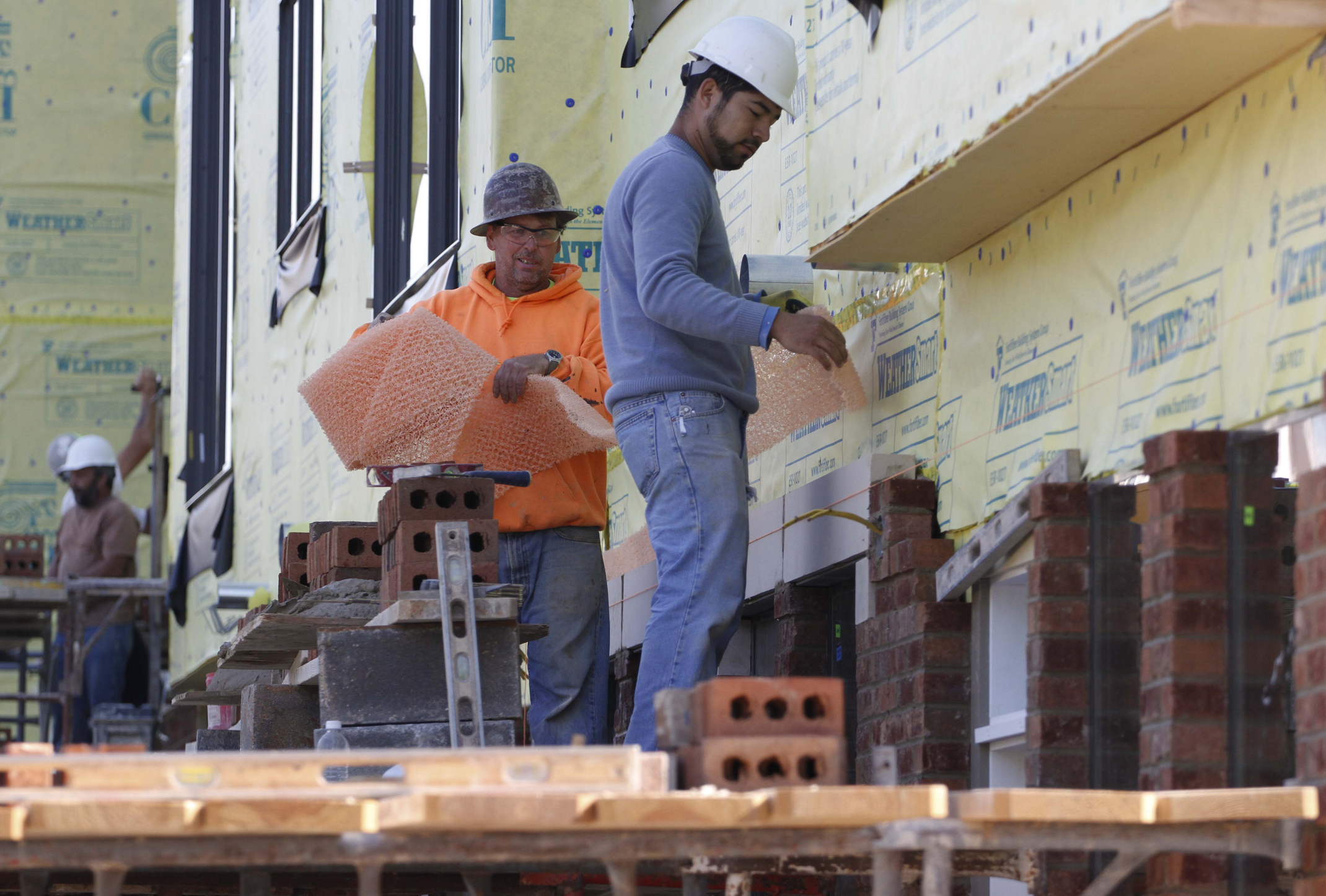The housing recovery isn't around the corner. It's here. Mostly.
While the market is still considerably off from its unsustainable peaks in 2006 and 2007, Chattanooga's average home price has surpassed a healthy level of three times the average local income, and is well above the normal ratio of 2.7 times average income.
Builders today complain that the banks aren't lending money fast enough for developers to create new lots, and Realtors say that some neighborhoods have 50 to 60 percent fewer options from which to choose when buying a home -- both of which are good problems to have.
Nationwide, sales of previously occupied homes grew to the highest level in three and a half years, rising to a seasonally-adjusted annual rate of 4.97 million. Median home prices in the U.S. jumped 11 percent last month from April 2012 to $192,800 -- the highest in nearly five years.
Foreclosed home sales are disappearing, and buyer traffic has increased by almost a third during the year, the National Association of Realtors said.
In Tennessee, consumer sentiment is high, and surveys show that more and more consumers believe it could soon be time to buy a house, said David Crowe, chief economist for the National Association of Homebuilders.
"It's fairly easy to be confident about what's going on," Crowe told a packed crowd of builders and real estate agents at the Chattanooga Choo Choo on Wednesday.
To be sure, the recovery from the Great Recession has been sluggish. In 2011, residential home sales were the worst since the 1940s, Crowe said. Even today, the Tennessee housing market is still only halfway to a level that could be considered "normal" in terms of sales. A slew of regulations prevents many able buyers from getting a loan unless their credit is "golden," Crowe said, and D.C. lawmakers' financial foibles could further push off a full-blown, fast-paced recovery.
"But the good news is that housing has developed enough momentum that I don't think it is going to slow down," he said.
The Greater Chattanooga Association of Realtors reported that April sales jumped 15.4 percent over the same month in 2012, as the supply of homes for sale dried up at a rate of about 8 percent. The median sales price of homes continued to grow at 4 percent to $135,000, Realtors reported.
On the other hand, much of the growth in housing is happening in the world of apartments, which has compensated for a mostly stagnant single-family market, Crowe said.
"The multifamily market, they were the first to start feeling that recovery," he said. "As a result, our level of production there is back to the same level it was in the early 2000s."
Eventually, economists expect that apartment dwellers' yearning for their own place is going to overwhelm the lingering sense of uncertainty they feel at the direction of the country's economy.
"All the polls suggest that there's still a strong desire to become a homeowner," Crowe said. "While the new restrictions on financing and the weak job market will delay that, that box on the fourth floor of a walkup is not always going to be sufficient."
There are still some hurdles. An NAHB survey shows that 60 percent of builders feel that they're receiving appraisals that are below the cost of building the house, due to both overcautious appraisers and cost increases in a strained building material market.
"Material prices are near the same prices they were at the peak of the market, when we were pushing every part of the market to capacity," Crowe said.
And nationally, first-time homebuyers made up only 29 percent of sales last month, the lowest proportion in more than two years, The Associated Press reported. In a healthy market, where first-time buyers purchase from existing homeowners, who then go on to buy larger homes, first-timers make up 40 percent of the total.
That could reflect a structural change in how the next generation views work and life, Crowe said, which could slow the rate of homeownership. Unlike many in previous generations who only worked one job their entire life and therefore needed only one home, the new generation of workers are more likely to switch jobs -- and homes -- every few years. That type of lifestyle is still driving a building boom in rental housing.
"My father worked the same job his whole life," Crowe said. "I'm expecting my sons to have half a dozen jobs, that's the way the world works now. They will probably be renters for a little while."
The Associated Press contributed to this report
Contact staff writer Ellis Smith at esmith@timesfreepress.com or 423-757-6315.
